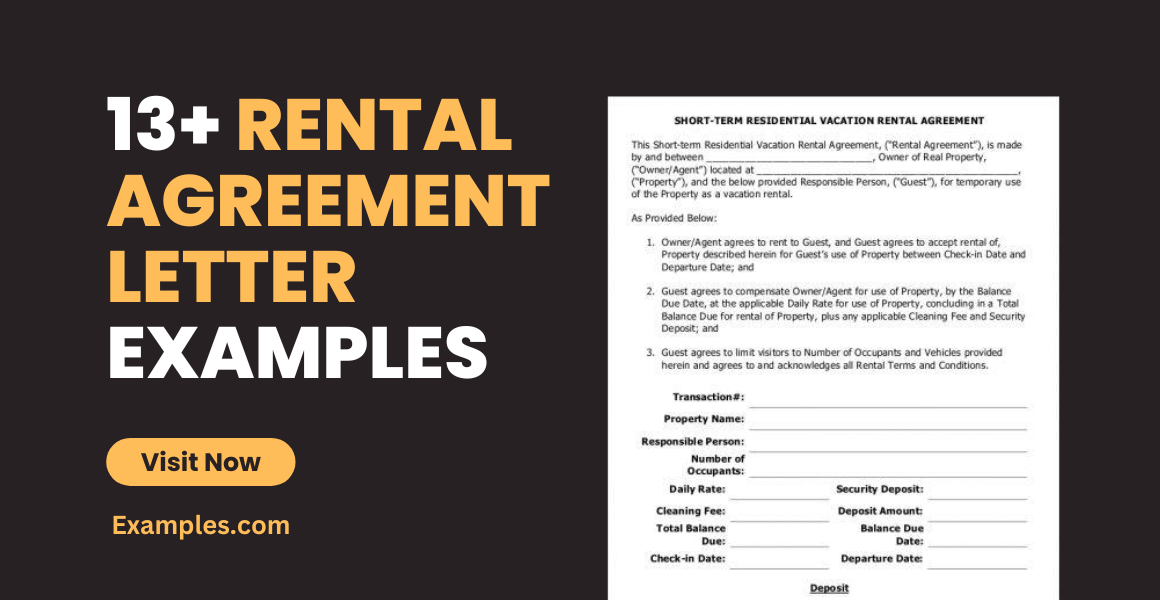

Have you ever thought of renting out your house, apartment, or any other property to a third party? Or if you don’t have your own property, planning to acquire one in the near future with the purpose of renting it out as a source of income? You may also see business agreement letter examples.
If you think about it, acquiring your own property is rather easy and very much attainable. As long as you have enough funds, you just need to have an general agreement with the seller and sign a few paperwork. The challenge actually lies in taking care of your property and earning from it long-term. You definitely do not want to to acquire or develop a property and lose it after a couple of years due to inability to pay taxes and mismanagement issues.
Composing a rental agreement is the first step in making sure you maximize the earning opportunity of your property. In this article, we will be discussing the concept of rental agreements, its purpose, and uses in the business and accommodation industry. For you to create an effective rental agreement, we also provided some examples and templates of rental agreements for you to use as a guide when you will be making your own agreement.
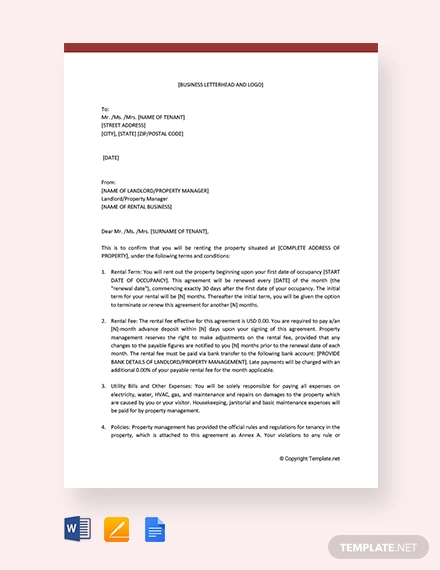
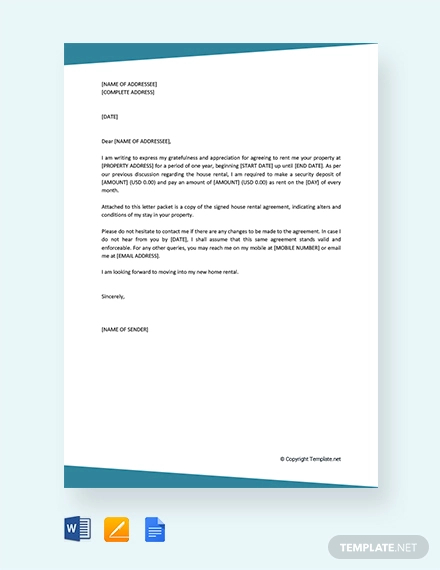
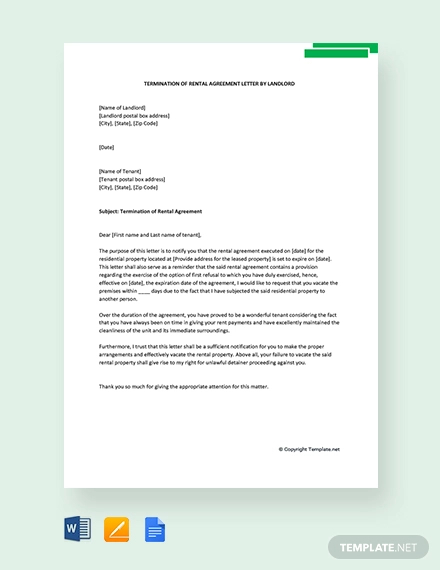
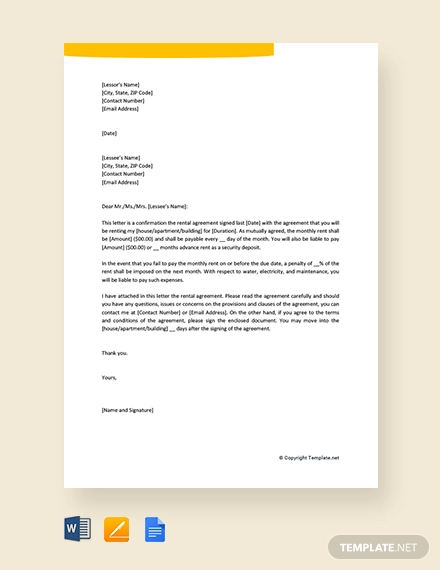
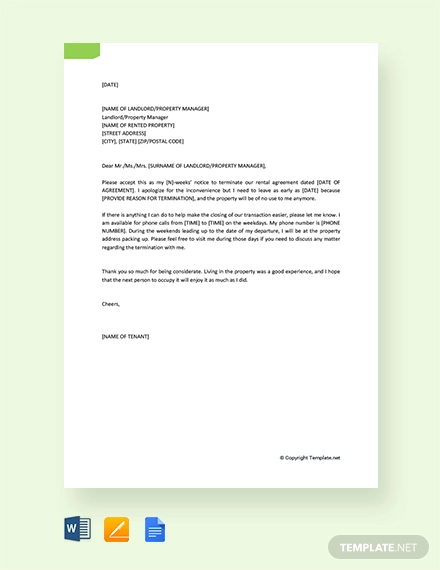
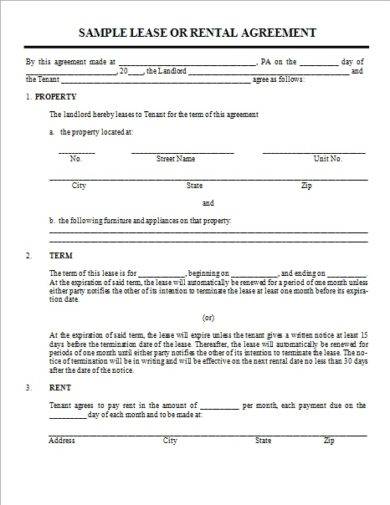
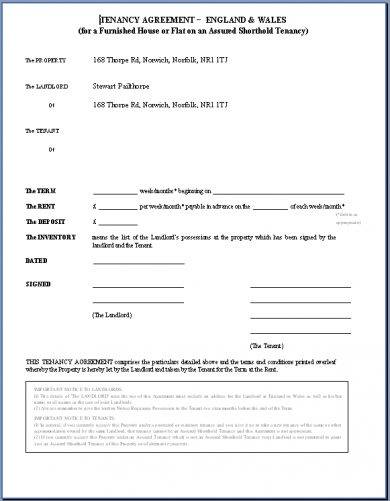
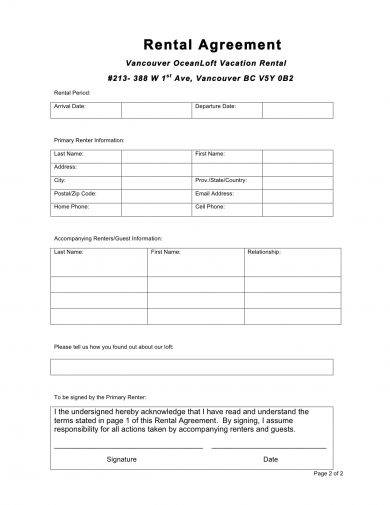
These days, rental and lease agreements have been used interchangeably for all types of property, be it an office space, an apartment, a studio type condominium, a commercial building, or even a house. In actuality, these two terms are rather similar but there are significant differences between rental and lease agreements that people often seem to forget.
Since the two terms are used interchangeably by practically everyone doing business, it has unfortunately become the norm even though there are glaring differences between the two.
Rent and lease are similar terms to begin with. It is both defined as the agreement entered between two parties in which one party uses (rents or leases) a property by the other party within a specific time period in which the party who uses the property for his own purpose or for the purpose indicated in the commercial agreement to the other party (sometimes with interest included if there is delay of payment).
So what actually is the difference between rental and lease agreements? The answer lies in the time period in which both agreements are based on. Rental agreements are short-term agreements or simple contracts while lease agreements are more focused long term. Rental agreements are renewed and negotiated oftentimes on a monthly basis while lease agreements are negotiated after one year or more (hence, being long term).
There is a bigger space or room for negotiation in rental agreements as the landlord (owner of the property) and the tenant (individual who rents the space or accommodation) can easily renew the contract wherein the tenant continues to use the space for another month. Additional terms can also be negotiated between the landlord and the tenant since the tenant is not bound to any provisions of the agreement or general contract by more than a single month.
Rental agreements are better suited for accommodation properties like a room, condominium space, apartment, or house since the tenant only uses the space for basically living and shelter purposes.
There is no limit on the terms that can be negotiated between the landlord and tenant. It can either be in regards to bringing pets in the property, repainting and the installation of various appliances, electronics or furniture, adding another person or group of people to live together with the tenant, increase of rental payment, or basically repairs or fixes that need to be accomplished. You may also see letter of agreement examples.
Lease agreements meanwhile are better suited for business activities. Office spaces and office buildings need to have a more permanent location due to various reasons.
One reason is centered on clients and customers. It would be detrimental for the company in terms of income and profitability if it moves from one location to another in a span of a few months. The company would lose customers quick especially if it decides to move to another location especially if it has already established a strong customer base within a specific area. You may also like business proposal letter examples.
Either you are a start-up company or a multimillion dollar corporation, the last thing you want to do is confuse your customers and make them travel to another location that might be not convenient for them. Remember that your customers or clients are the reason why your business is earning. Without them, bankruptcy is your definite future.
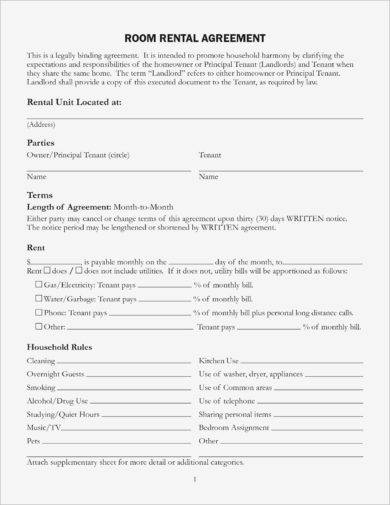
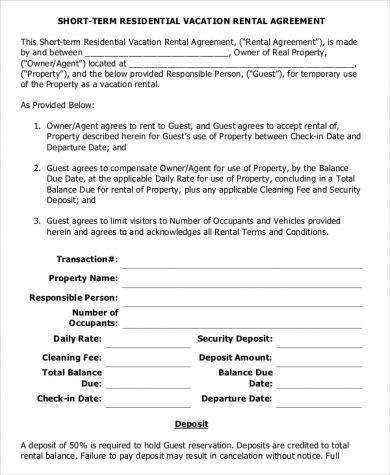
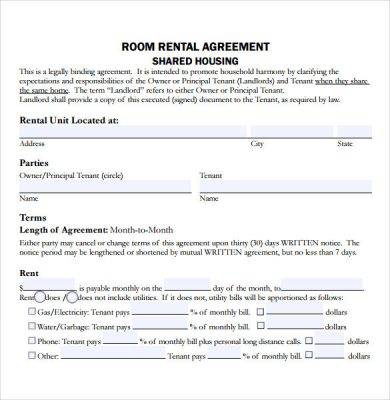
Another reason is centered on the company’s employees. If a company that employs around 500–1000 employees suddenly moves its operations to another city, then most of the time more than half of the employees would rather resign than move together with the company. You may also see management agreement examples & samples.
Employees who are living in a rather distant location from where the company conducts its operations and require multiple transfers of transportation will find it difficult if the company decides to move to another office space or building. If the company moves to a much farther location, it will be more costly to the employee since he or she will be spending more for the fare. Tardiness will also become an issue if employees have to travel far to reach their workplace. You may also like formal letter examples and samples.
Another reason is logistics. Similar to losing customers, logistics can be a major problem for a company if it moves to another office space or building. This can be true for manufacturing or production companies.
Even if it is only a small scale production company, moving from one location to another already delays the production cycle and will cause some big headaches to the wholesalers, retailers, or even to other companies who are linked to the company’s production cycle. You may also check out service agreement examples.
In that case, the company has to stop operations entirely and possibly lay off a number of employees that can only produce a negative short-term and long-term result for the said company. Additionally, most countries require all businesses to register to the government, but some countries make it difficult and require a long and complicated process for both small businesses and large enterprises if these said companies decide to transfer to another business location. You might be interested in appointment letter format examples.
Lastly and probably the most important reason why lease agreements are very important to companies is the cost that is involved when setting up operations in another area or city. It is not cheap to move to another business location.
Even if the company finds a cheaper space, it will have to deal with transfer, installation, and renovation costs. Loading office equipment to a truck, boat, or plane, then setting up the said equipment and installing other hardware and software in the new space, then painting and adding other aesthetics to fit the company’s theme require significant costs and might financially cripple the company if it is not careful in dealing with transfer costs. You may also see business agreement examples.
The great thing about lease agreements is that, although negotiations are quite limited since the tenant is locked to the agreement or contract for a year or more, it provides steady income for the landlord or lessor since he is assured that the tenant will be paying the lease for the entire duration of the agreement. If there is a delay of payment and payment terms within the basic agreement is violated, it can easily provide legal grounds for the landlord to file a criminal case against the tenant.
On the other hand, the tenant can benefit from entering into a lease agreement with the landlord especially if the location benefits the tenant (in this case a company or business organization), its clients, and other stakeholders (suppliers, partners, government contacts, media personnel, community and social welfare groups, etc.). You may also like complaint letter examples.